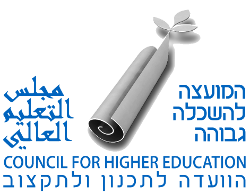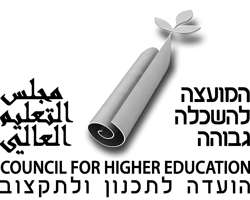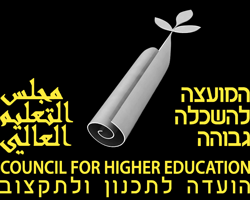International Students
Postdoctoral Scholars will be Absorbed in Israel
The CHE Is Expanding Bilingual Hebrew and English Academic Programs
Program Goals: An Average Increase of 118% in the Percentage of International Students Accepted in Israel In 2022, approximately 24,000 international students are expected to study in Israel as opposed to approximately only 11,000 international students in 2017.
The Program’s goals include:
Doctoral degrees – 120% increase in the number of students
Doctoral students – 60% increase
Master’s degrees – 105% increase
Bachelor’s degrees – 30% increase
Partial degrees – 150% increase
- Goal: Increase academic quality and strengthen the international reputation of institutions in Israel
PBC Chair, Prof. Yaffa Zilbershats: “The PBC has committed to turning Israel into a magnet for outstanding students from various countries around the world: From the Americas, Europe, and the Far East. The focus is primarily on research students and master’s degree students but includes bachelor’s degree students as well. Significantly increasing the budget will permit many more outstanding international students to be accepted in Israel and to postdoctoral studies as well as bachelor’s and master’s degree programs. Similarly, we will make sure to improve the availability of education in foreign languages here in Israel and will encourage Israeli students to enroll in overseas study and internship programs and thus encourage reciprocal relationships which will greatly enrich the academic quality in Israel and strengthen Israel’s international reputation.”
The Counsel for Higher Education and the Planning and Budgeting Committee approved the multiyear plan to strengthen internationalism in higher education, whose expected budget will be NIS 435 million. In the framework of this program, the PBC established quantitative goals have been set for accepting outstanding international students such that: In 2022, approximately 24,000 international students are expected to study in Israel as opposed to approximately 11,000 international students in 2017.
- According to these quantitative targets, between 2017-2022, there will be an expected increase of 120% (from 1043 two 2300) in the percentage of international postdoctoral students and an increase of 60% (from 791 to 1265) in the number of international doctoral students accepted in institutions in Israel. Similarly, during the same years, we will double (from 1.462 to 3.000) the number of international master’s degree students, and expect an increase of 30% (from 1.933 to 2500) in the number of international bachelor’s degree students.
- The goals set by the CHE and the PBC also address the expected increase of 150% (from 6.000 to 15,000) in the number of international students enrolled in short programs (such as summer courses, semester abroad, and so forth).

Strengthening internationalism is intended to increase the competitive level of Israeli academia by accepting outstanding students from abroad and strengthening the international reputation of Israeli institutions. In addition to this, promotion of internationalism in higher education is extremely important not just from an academic standpoint, but rather from political (diplomatic ties with foreign countries), social, and economic standpoints, as well as from a Zionist standpoint of opening these institutions to worldwide Jewry and turning into and turning Israel into a beacon of academia.
We emphasize that according to PBC data, the percentage of international students studying in Israel currently stands at approximately 1.4%. This percentage is significantly lower than the average in OECD countries, which currently stands at approximately 6%. The PBC has explained that this stems, first and foremost, from language difficulties as most instruction at institutions of higher education in Israel is offered in Hebrew. Additionally, the special security concerns in Israel at times deter foreign students from coming here.
In light of and in addition to this, the PBC notes that most institutions in Israel are not prepared to accept international students. For the most part, the ability to deal with the students is deficient which makes it difficult for foreign students. Similarly, there are political obstacles such as visas and work permits for spouses which delay the ability to open the gates of these institutions to foreign students. Currently, the staff of the CHE and the PBC are working to remove obstacles vis-à-vis the relevant entities within various governmental ministries.
In the framework of the multiyear plan, the PBC will allocate approximately NIS 100,000,004 developing internationalism in institutions of higher education.
Development of internationalism in institutions of higher education, including, among other things:
- Encouraging the development of new study programs in a foreign language (with an emphasis on English)
- Increasing the number of international students enrolled in full degree programs at the institution
- Enrolling international students for short periods of time – summer courses, study abroad programs, visiting doctoral candidates, etc.
- Imparting international skills to Israeli students and increasing the number of Israeli students attending (an) academic course(s) or participating in an internship abroad as part of the degree program.
- Promoting international research conferences.
Additionally, the PBC will allocate approximately NIS 100 million in scholarships for Israeli post-doctoral students enrolled in leading institutions abroad as well as enrolling outstanding doctoral and post-doctoral students from foreign countries, including: The USA, Canada, China, India, and more. An additional NIS 10 million will be allocated for “glue grants” in order to create and deepen research relationships between Israeli researchers and researchers abroad.
Additionally, the PBC is currently working on additional programs in the area of internationalism which will be presented for approval shortly.



